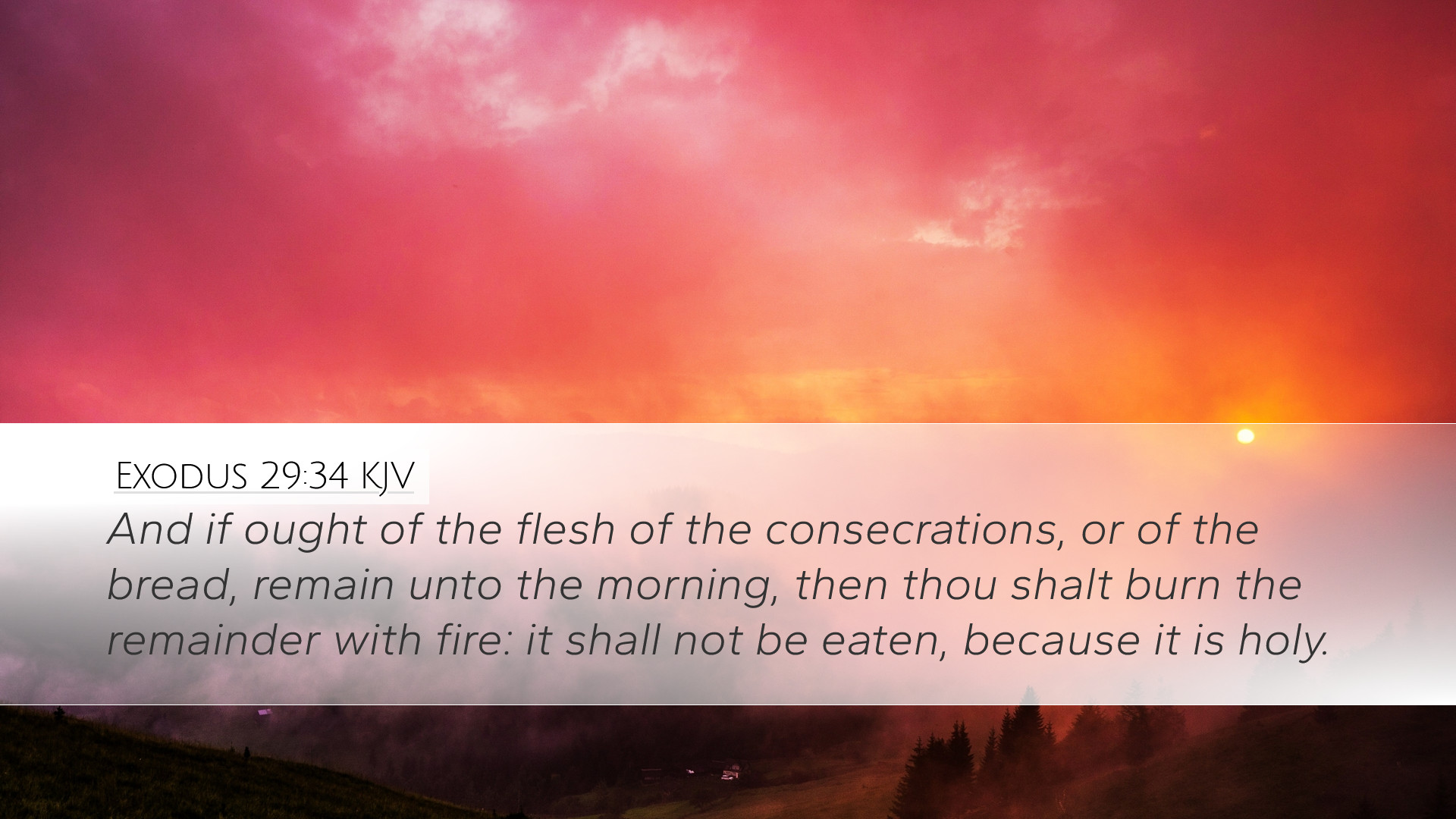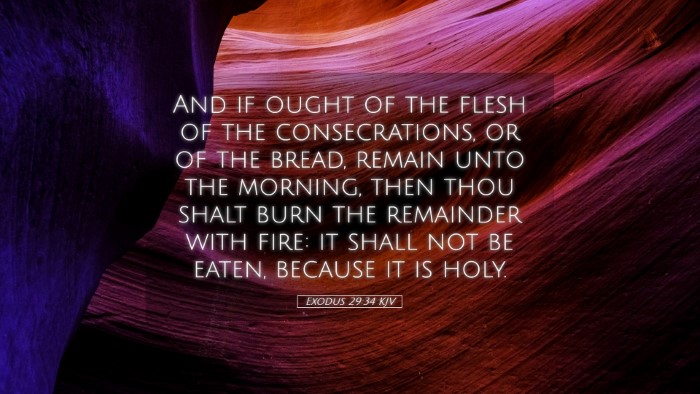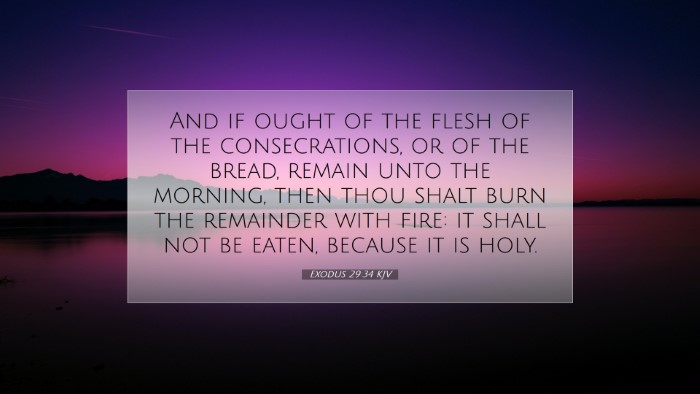Exodus 29:34 - Commentary and Insights
Verse Text: "And if any of the flesh of the consecrations, or of the flesh of the offering, remain until the morning, then thou shalt burn the remainder with fire: it shall not be eaten, because it is holy."
Introductory Remarks
This verse comes at a crucial point in the instructions given to Moses regarding the consecration of Aaron and his sons as priests, delineating the proper conduct concerning the remnants of the offerings that were part of their ordination. The regulations set forth in Exodus are not merely ceremonial; they carry significant theological implications.
Contextual Background
The chapter outlines the elaborate ceremony for ordaining priests. It emphasizes God's holiness and the seriousness of approaching Him. This verse specifically touches on the treatment of holy things, an essential theme in the Pentateuch, which highlights the importance of ritual purity and the sanctity of offerings.
Theological Implications
- Divine Holiness: The stipulation that leftover offerings are to be burned underscores the concept that God’s holiness cannot be compromised. Commentators like Matthew Henry emphasize that the residue from a holy offering must not be treated as common or profane.
- Separation of Sacred and Profane: Albert Barnes comments on the necessity of distinguishing between that which is holy and that which is ordinary. Consuming something that is designated as holy would dishonor God.
- Consecration and Devotion: Adam Clarke notes that the act of burning the leftovers signifies a dedication to God. It highlights that all that pertains to holiness must be treated with the utmost respect.
Pastoral Applications
- Pastors are reminded of the significance of maintaining integrity when it comes to ministry practices and resources. Utilizing what is meant for God in improper ways dilutes its sacred purpose.
- This verse also serves as a teaching point on the significance of sacrifice and surrender in the believer's life. Just as priests did not treat the remnants lightly, God's people today must not take their covenant relationship for granted.
Commentary Insights
Matthew Henry's Perspective
Matthew Henry elaborates on the nature of the offerings, emphasizing that the act of consuming them by humans would suggest a loss of their sacredness. Rather than being partaken of, those offerings should be disposed of according to the divine command, affirming their holy character.
Albert Barnes' Analysis
Albert Barnes articulates that the prohibition against eating any remnants derived from consecration offerings serves to instill a profound sense of reverence for God and His directives among the people. Such commands reinforced the understanding that all offerings belong exclusively to God.
Adam Clarke's Commentary
Clarke expands upon the idea that not only are the burnt remnants adhering to ritual law, but they also symbolize the complete surrender to God. The fire that consumed the leftovers represents both judgment and acceptance—what remains is wholly offered back to God, reflecting His sovereignty.
Conclusion
The directive found in Exodus 29:34 transcends the ceremonial requirement; it addresses a core understanding of how God's holiness compels believers to interact with the sacred aspects of their faith. It serves as a profound reminder of God's claim over what is consecrated, urging the church toward a more respectful and reverent approach to worship and service.


